In the storeroom of the University of Manchester found the lost letters of Alan Turing
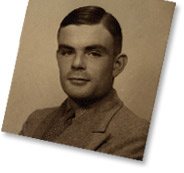 A unique collection of emails to Alan Turing and copies of his letters were found in an old locker in one of the office premises of Alan Turing. The letters are dated from the beginning of 1949 to the most tragic death of the great mathematician in June 1954. Apparently, more than 60 years, no one has seen these rarities. It is surprising that they were found only now.
A unique collection of emails to Alan Turing and copies of his letters were found in an old locker in one of the office premises of Alan Turing. The letters are dated from the beginning of 1949 to the most tragic death of the great mathematician in June 1954. Apparently, more than 60 years, no one has seen these rarities. It is surprising that they were found only now. A total of 148 documents were found, including a letter from the British intelligence service GCHQ, a handwritten script for a radio program on the BBC about Artificial Intelligence, invitations to lecture from the most famous American universities such as the Massachusetts Institute of Technology. There are also letters on professional topics , including a discussion of the theory of the complex numbers of a young schoolchild and mathematics prodigyLionel March from the town of Hove in East Sussex. Copies of some of Turing's letters also went to the archive: most of them are typed on a typewriter. According to experts, the dictation letters were typed by Alan Turing’s secretary, Miss S. J. Wagstaff.
Many letters belong to the main areas of Turing research: it is Artificial Intelligence, computer science and mathematics.
For example, in one of the letters, colleague Frank Roberts from University College London asks Alan to evaluate March's theory and to make his own opinion, because it is inaccessible to his understanding. Turing called the scientific article of the genius schoolboy "really quite interesting, although not really very innovative." He also thanked the addressee for commenting on Turing's article on chemical morphogenesis in plants, which he considered important, although "most biologists do not know enough mathematics to understand what it is about."
In the collection found, there was also a copy of the letter from Alan Turing to Lionel March himself with comments about “reun algebra”. He explains to the student that this is a type of linear algebra, which is now being actively studied, and suspects that March is trying to generalize the complex number, which has already been done with "imagination and competence."
By the way, this March, then a young guy, later became an outstanding architectural theorist, he is still alive, he is 82 years old.
In the mail correspondence there are not only invitations from universities, the press and requests for inspection or use of Mark I / Ferranti Mark I computers, which were under the responsibility of Turing as deputy director of the Computing Machine Laboratory (CML). There is a correspondence on specific topics.
For example, the correspondence with the American scientist William Bun, who reviewed the Turing article “The word problem in semigroups with cancellation”. In the correspondence there are discussions of other articles of the English mathematician "Some calculations of the Riemann zeta function", "Computing technology and intelligence", as well as two of his relatively well-known articles on game theory - "Digital computers used in games" and "Solvable and intractable Problems".
In general, the correspondence does not reveal the secrets of the personal life of Alan Turing, which is why he eventually committed suicide, and does not provide new information about the secret Enigma project. But from the letters one can understand what the scientist was doing as part of the daily routine. Apparently, Turing was really actively engaged in the problem of chemical morphogenesis. Well, the correspondence reveals some previously unknown details of his personality. For example, refusing an invitation to participate in a conference in the United States in April 1953, Alan wrote: “I would not like to travel, and I despise America” (I would not like the journey, and I detest America).
Below are a few letters that the University of Manchester posted in high resolution (mirror hi-res photos in the zip archive , 31 MB):
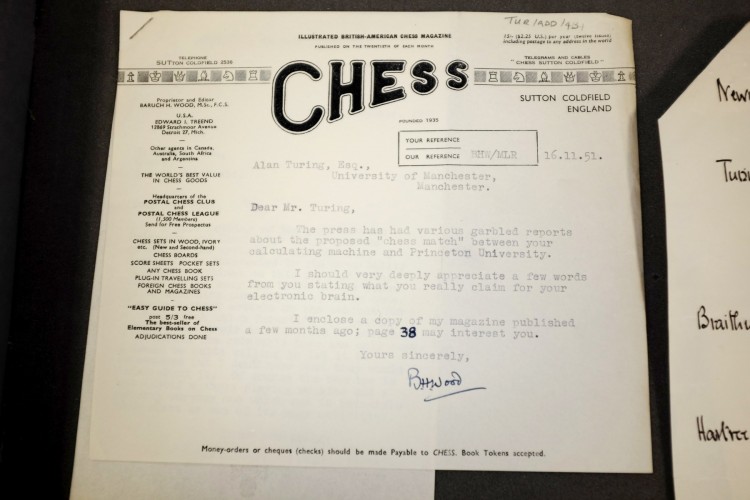
High resolution
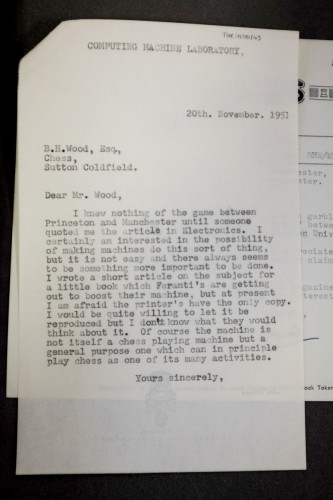
copy. High resolution copy. High resolution
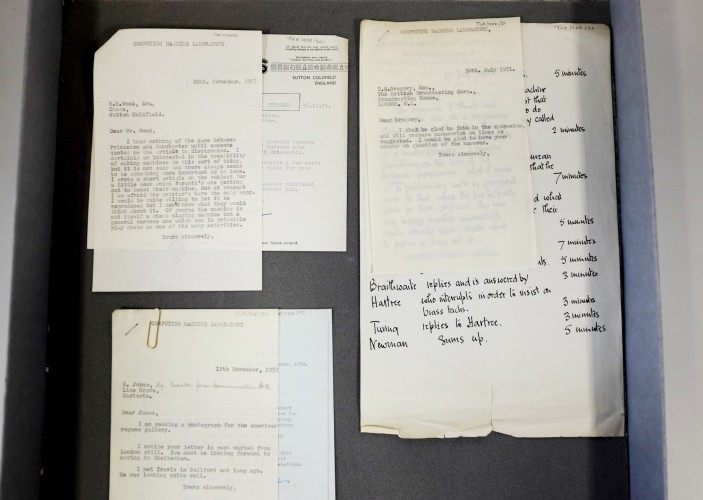
copy. High resolution

copy. High resolution

copy. High resolution
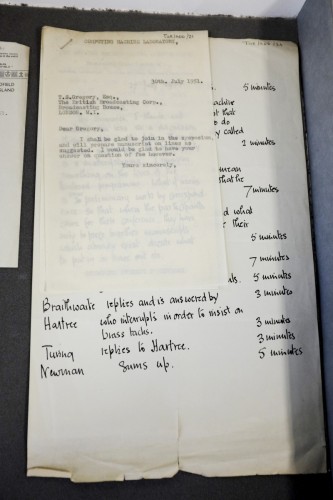
copy.
In reality, these letters were found in May 2017. To date, they are sorted, cataloged and placed in the library repository by the archivist of the library of the University of Manchester.
Letters are stored in the archives of the University Archive and Records Center, which is located in the main library of the university. They are assigned a classification number GB 133 TUR / Add. Photocopies of letters can be provided only for individual research projects, depending on the status of the document. This collection is available to all accredited library readers (i.e., having a library card).
Unfortunately, the library cannot digitize letters and put them in open access. The fact is that some materials fall under the Data Protection Act 1998 (Data Protection Act 1998), which protects the personal data of people from an open publication. They can only be used for research scientific purposes. Data processing for this task is entrusted to the University of Manchester Library. Anyone who gains access to these materials must sign a special document, according to which he undertakes to comply with the requirements of the law and process documents only independently, without passing information to third parties. Some parts of the collection may even be closed to readers, in accordance with the requirements of the law. Marks about the relevant restrictions will be made in the library catalog.
At the same time, many other letters found earlier are freely available in the Alan Turing Digital Archive .
